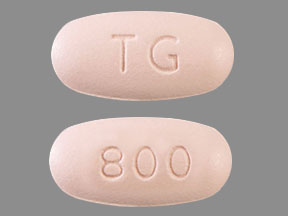Cobicistat/darunavir Disease Interactions
There are 4 disease interactions with cobicistat / darunavir.
Darunavir (applies to cobicistat/darunavir) hepatotoxicity
Major Potential Hazard, Moderate plausibility. Applicable conditions: Liver Disease
Drug-induced hepatitis has been reported with the use of darunavir/ritonavir. Patients with underlying liver disease including chronic active hepatitis B or C viral infections have an increased risk for liver function abnormalities. Therapy with darunavir should be administered cautiously in patients with preexisting liver disease, liver enzyme abnormalities, or hepatitis. The combination of darunavir/ritonavir is not recommended for use in patients with severe hepatic impairment.
Cobicistat (applies to cobicistat/darunavir) creatinine clearance
Moderate Potential Hazard, Moderate plausibility. Applicable conditions: Renal Dysfunction
Cobicistat has shown to decrease creatinine clearance without affecting actual renal glomerular function and no dose adjustment is required in patients with renal impairment, including those with severe renal impairment. However, this effect should be considered when interpreting changes in estimated creatinine clearance in patients initiating cobicistat when there is presence of renal impairment or in patients receiving other drugs that need to be monitored with estimated creatinine clearance. Patients who experience a confirmed increase of serum creatinine of 0.4 mg/dL from baseline should be closely monitored for renal safety.
PIs (applies to cobicistat/darunavir) hemophilia
Moderate Potential Hazard, Moderate plausibility. Applicable conditions: Coagulation Defect
There have been reports of increased bleeding, including spontaneous skin hematomas and hemarthrosis, in patients with hemophilia type A and B treated with protease inhibitors; however, a causal relationship has not been established. In some patients, additional factor VIII was given. In more than half of the reported cases, protease inhibitor therapy was continued or reintroduced. Patients with hemophilia or other coagulation defects should be monitored closely for bleeding during protease inhibitor therapy.
PIs (applies to cobicistat/darunavir) hyperglycemia
Moderate Potential Hazard, Moderate plausibility. Applicable conditions: Diabetes Mellitus, Abnormal Glucose Tolerance
New onset diabetes mellitus, exacerbation of preexisting diabetes mellitus, hyperglycemia, and some cases of diabetic ketoacidosis have been reported during postmarketing surveillance in HIV-infected patients treated with protease inhibitors. Some patients required either initiation or dosage adjustments of insulin or oral hypoglycemic agents for treatment of these events. In some cases, hyperglycemia persisted despite discontinuation of protease inhibitor therapy. A causal relationship has not been established between protease inhibitor therapy and these events. Monitoring patients for hyperglycemia, new onset diabetes mellitus, or exacerbation of diabetes mellitus should be considered during protease inhibitor therapy.
Switch to professional interaction data
Cobicistat/darunavir drug interactions
There are 656 drug interactions with cobicistat / darunavir.
Cobicistat/darunavir alcohol/food interactions
There is 1 alcohol/food interaction with cobicistat / darunavir.
More about cobicistat / darunavir
- cobicistat/darunavir consumer information
- Check interactions
- Compare alternatives
- Reviews (3)
- Side effects
- Dosage information
- During pregnancy
- Drug class: antiviral combinations
- En español
Related treatment guides
Drug Interaction Classification
| Highly clinically significant. Avoid combinations; the risk of the interaction outweighs the benefit. | |
| Moderately clinically significant. Usually avoid combinations; use it only under special circumstances. | |
| Minimally clinically significant. Minimize risk; assess risk and consider an alternative drug, take steps to circumvent the interaction risk and/or institute a monitoring plan. | |
| No interaction information available. |
See also:
Further information
Always consult your healthcare provider to ensure the information displayed on this page applies to your personal circumstances.


